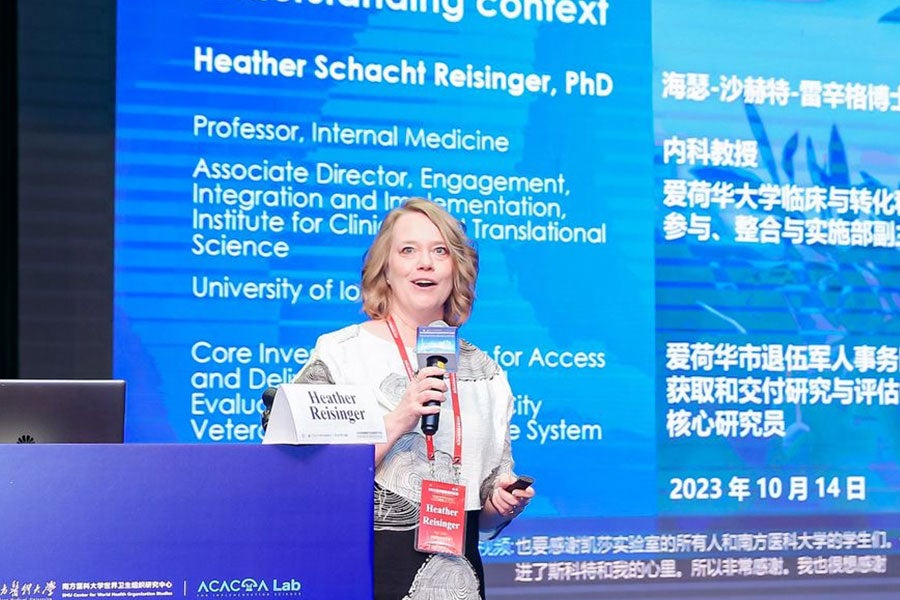Bridging the Gap
Did you know it takes an average of 17 years for evidence-based interventions and healthcare practices originated from research to be applied to hospital and community settings? Heather Schacht Reisinger ’96 has dedicated much of her career to closing the gap between research and real-world implementation, including her current role as the director of the University of Iowa’s recently launched Implementation Science Center.

Heather Schacht Reisinger ’96
Reisinger, a professor of internal medicine at the university’s Carver College of Medicine, is a medical anthropologist with deep roots in the field of implementation science, focused on advancing evidence-based practices, interventions, and policies in healthcare and public health settings to improve people’s health.
“We aren’t taught to be interdisciplinary as scientists,” says Reisinger. “We’re taught to be good at what we do in our space. Getting people to think outside of their discipline can be challenging. People aren’t thinking about the next steps early enough in the process, which delays things.”
Through the ISC, Reisinger works across disciplines, helping people incorporate implementation science into their projects before the research stage.
“The pinnacle of what we do as scientists is get our work published, and then we expect someone to pick it up and carry it to the next space,” she says. “It’s not our skill set to find and help the next group with how to make it work for them. We’re trying to build that skill set with implementation science. We must build that into how we think as a scientific community.”
The importance of interdisciplinary collaboration and community engagement in implementation science, particularly in rural areas, is key to improving people’s health. It’s about building a community of people focused on ensuring everyone has access to evidence-based practice in their healthcare or in their goals around well-being, she says. The ISC is working on several projects, including a grant with the Iowa Primary Care Association and the Iowa Community Hub. If funded, the partnership would create a collaborative care model between behavioral health specialists and patients in rural areas to monitor mental health symptoms and identify when to elevate their concerns to a higher level of care.*
Reisinger, who earned a master’s degree in applied anthropology from the University of Maryland College Park and a PhD from American University, was fascinated by anthropology from an early age. But when she arrived at Luther, she planned to be an art teacher. Married to fellow Luther alum Scot Reisinger ’96, Heather says professor emerita Lori (Van Gerpen) Stanley ’80 was instrumental in her decision to switch to an anthropology major.
“I loved her classes,” says Reisinger. “She allowed me to take ethnography my first year, which was uncommon. It solidified my becoming an anthropology major. During my time at Luther, I came to believe that anthropology is a great discipline for applying in many different areas and creating change.”
*Unfortunately, Heather received notice in May that this grant application, along with many other grant applications to the National Institutes of Health, would not be reviewed or funded.